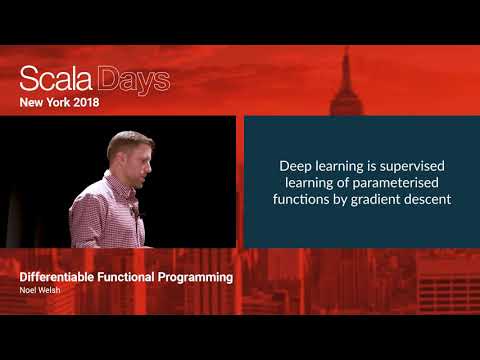Description:
Explore differentiable functional programming in this Scala Days conference talk. Dive into parameterised functions, supervised learning, and gradient descent techniques. Learn about deep learning as supervised learning of parameterised functions, tensor multiplication, and non-linearity. Discover algorithms for calculating gradients, including symbolic differentiation, forward-mode, and reverse-mode approaches. Examine the use of monads and continuations in gradient calculations, and understand how Scala's expressive type system can address tensor dimension challenges. Gain insights into linear logic, differential λ-calculus, and the potential for Scala in developing next-generation deep learning systems.

Differentiable Functional Programming
Add to list
#Conference Talks
#Scala Days
#Computer Science
#Machine Learning
#Deep Learning
#Supervised Learning
#Gradient Descent
#Functional Programming
#Monads
#Tensors